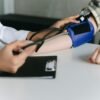Order your own bloodwork for $60 and know your blood counts, TSH, metabolic and lipid panels.
Navigating the healthcare system in the United States is not easy, especially without adequate health insurance. To lower costs and improve accessibility, many direct-to-consumer (DTC) or direct access lab testing services are now available. But what is DTC lab test? Simply put, it is lab testing (like bloodwork) that you can purchase directly without a doctor’s referral. This blog compares DTC lab testing services from several different companies.
What is the process of DTC testing?
The process of DTC lab testing is straightforward and typically consists of the following steps:
- Order: Consumers choose and order the desired test online.
- Sample Collection: Depending on the test, samples (e.g., blood, saliva, urine) can be collected at home or at a lab.
- Shipping/Processing: Home-collected samples are sent to a lab for analysis; lab-collected samples are processed immediately.
- Results: Test results are typically available online through a secure portal within a few days.
What are the common types of DTC tests?
- Genetic Testing: Tests for ancestry, genetic predispositions to certain diseases, and carrier status for inherited conditions.
- Health and Wellness: Tests for vitamin deficiencies, hormone levels, and general wellness markers.
- Disease Screening: Tests for sexually transmitted diseases, diabetes markers, and other chronic conditions.
Affordable DTC or direct access lab testing represents a growing trend in personalized healthcare, offering a convenient and accessible way for individuals to monitor and manage their health. These services are offered on many websites, including Quest (by Quest Diagnostic), LabCorp On Demand (by LabCorp), Ulta Lab Tests, Walk-In Lab, HealthLabs, and many more.
How much do the self-ordered lab tests cost?
At the time of writing this article, we looked up the prices for some common tests:
| Quest | LabCorp On Demand | Ulta Lab Tests | Walk-In Lab | HealthLabs | |
|---|---|---|---|---|---|
| CBC | $29 | $29 | $20.95 | $25 | $28 |
| CMP | $49 | $49 | $20.95 | $28 | $39 |
| Lipid Panel | $59 | $59 | $21.95 | $28 | $29 |
| A1c | $39 | $39 | $21.95 | $22 | $29 |
| TSH | $49 | $49 | $21.95 | $28 | $39 |
| hCG | $52 | $49 | $34.95 | $35 | $49 |
| PSA | $69 | $69 | $27.95 | $41 | $49 |
Some of these sites may have an additional fee for drawing the blood and/or doctor reviewing. If you are ordering multiple tests, they often have bundles/panels that offer more discounts.

Why are DTC lab tests low cost?
DTC lab tests are often lower in cost compared to traditional lab testing ordered through a healthcare provider. Several factors contribute to these cost savings:
- No Middleman: By eliminating the need for a doctor’s visit to get a lab test order, DTC services remove an entire step from the process. This cuts out the additional costs associated with a healthcare provider’s consultation fees.
- Volume Discounts: DTC lab testing companies often negotiate bulk pricing with laboratories due to the high volume of tests they order. These savings can be passed on to the consumer.
- Streamlined Operations: DTC services often have more efficient, streamlined operations compared to traditional healthcare providers. They leverage online platforms and automated processes to reduce administrative costs.
- Direct Pricing: Without the involvement of insurance companies, DTC services can offer transparent and direct pricing. This avoids the additional costs that come with insurance claims and billing processes.
- Lower Overhead Costs: DTC lab testing companies typically have lower overhead costs than traditional medical practices. They do not need to maintain large offices, staff, or equipment, which helps keep prices low.
- Economies of Scale: DTC companies benefit from economies of scale by serving a large number of consumers. The cost per test decreases as the volume of tests increases, allowing them to offer lower prices.
- Market Competition: The competitive nature of the DTC lab testing market encourages companies to keep prices low to attract more customers. This competition benefits consumers through better pricing and service options.
- Consumer Responsibility: In DTC testing, consumers take on more responsibility for ordering and managing their tests. This self-service model reduces the need for extensive customer support and administrative assistance, further lowering costs.
These factors combined make DTC lab tests a cost-effective option for individuals seeking to monitor their health without the traditional barriers of cost and access associated with healthcare providers.
What are the abbreviations on a blood test?
Blood test results often include various abbreviations for different measurements and markers. Here is a list of blood tests with abbreviations:
- CBC – Complete Blood Count
- Hgb or Hb – Hemoglobin
- Hct – Hematocrit
- RBC – Red Blood Cell count
- WBC – White Blood Cell count
- MCV – Mean Corpuscular Volume
- MCH – Mean Corpuscular Hemoglobin
- MCHC – Mean Corpuscular Hemoglobin Concentration
- PLT – Platelet count
- ESR – Erythrocyte Sedimentation Rate
- BMP – Basic Metabolic Panel
- CMP – Comprehensive Metabolic Panel
- ALT – Alanine Aminotransferase
- AST – Aspartate Aminotransferase
- ALP – Alkaline Phosphatase
- BUN – Blood Urea Nitrogen
- Cr – Creatinine
- eGFR – Estimated Glomerular Filtration Rate
- LDL – Low-Density Lipoprotein
- HDL – High-Density Lipoprotein
- TSH – Thyroid-Stimulating Hormone
- T3 – Triiodothyronine
- T4 – Thyroxine
- HbA1c – Hemoglobin A1c
- PT – Prothrombin Time
- INR – International Normalized Ratio
These blood test abbreviations are essential for understanding various aspects of your health, ranging from blood cell counts to metabolic functions and organ performance.
Conclusion
In conclusion, direct-to-consumer (DTC) or direct access lab testing represents a significant shift towards making healthcare more accessible and affordable for individuals in the United States. By allowing consumers to order a variety of lab tests directly online, these services bypass traditional barriers such as the need for a doctor’s referral, reducing costs associated with consultations and administrative overhead. This convenience is complemented by transparent pricing, often lower due to negotiated bulk rates and streamlined operations. As this market continues to grow, fueled by competition and advancements in technology, DTC lab testing offers a promising avenue for proactive health management, empowering individuals to take charge of their well-being with greater ease and affordability.





